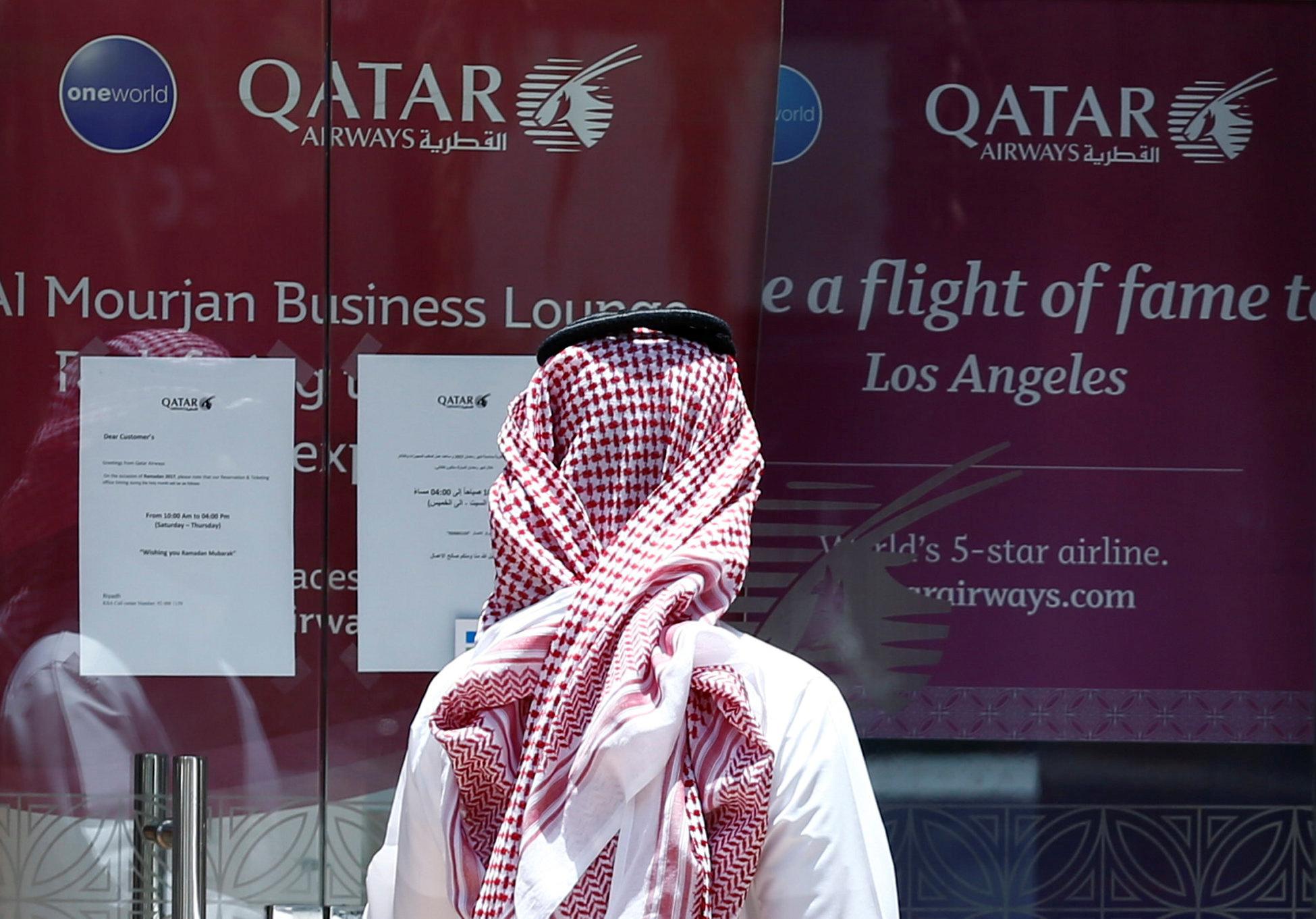Qatar says it is ready to negotiate with Gulf neighbours in diplomatic crisis over ‘legitimate issues’
Asian workers stranded in Saudi Arabia after Qatari bosses ordered out in sign diplomatic stand-off is far from over

Qatar has said it is ready to discuss “legitimate issues” with the Arab states which have demanded the tiny kingdom meet a list of demands before diplomatic ties are restored.
The energy-rich Gulf state has been plunged into crisis since Saudi Arabia, the UAE, Bahrain and Egypt severed all ties earlier this month over the country’s alleged ties to terrorism, sending the stock market plummeting and panicked citizens to supermarkets where they emptied shelves of food. Qatar has denied the allegations against it.
Families have been split up and myriad businesses affected by demands for Qatari nationals to leave the countries involved, and vice versa.
In Saudi Arabia, thousands of farmers and domestic workers originally from Asian countries have been effectively stranded in the almost one-month-old spat after their employers were kicked out, Ali Bin Smaikh al-Marri, chair of Qatar's National Human Rights Committee (NHRC), said in a Wednesday media conference.
“Usually the workers travel with Qataris - many Qataris employ farmers and travel with their domestic workers and drivers,“ he said.
““The workers were not allowed to travel into Qatar and now they are living illegally in Saudi Arabia and do not have basic needs. They have no shelter and cannot access money,” he added, going on to call the Gulfi stand-off “collective punishment.”
Doha’s rulers have so far surprised Riyadh and its allies by refusing to give into the bloc’s lengthy demands, which include shunning Iran and the Muslim Brotherhood and shuttering Qatari owned news outlet Al Jazeera, in order for air, land and sea links to be restored.
The deadline for Qatar to respond to the Riyadh-led demands is Sunday. On Thursday, Foreign Minister Sheikh Mohammed bin Abdulrahman al-Thani said that Doha was interested in negotiating legitimate issues, but some the demands were not reasonable as they are untrue.
“We cannot 'sever links with so-called Islamic State, al-Qaeda and Lebanese Shia militant group Hezbollah' because no such links exist,” he said in a statement. “And we cannot 'expel any members of Iran’s Revolutionary Guard' because there are none in Qatar.”
UAE Prime Minister and Dubai ruler Sheikh Mohammed bin Rashid al-Maktoum urged Qatar to fall in line with the rest of the six-nation Gulf Cooperation Council (GCC) in a poem published to his Instagram account late on Wednesday.
“Staying within the GCC umbrella is the only way to safeguard Qatar from the fangs of wolves”, Sheikh Mohammad wrote.
He also reaffirmed that the doors of dialogue are still open, saying “whatever the differences, our neighbour shall always be safe.”
However, other players in the crisis are not so brotherly-minded.
The UAE’s ambassador Omar Ghobash to Russia has said on Wednesday that Qatar could face fresh sanctions if it does not comply with the demands.
“One possibility would be to impose conditions on our own trading partners and say you want to work with us then you have got to make a commercial choice,” he said in an interview with the Guardian.
In Qatar itself, sources close to the government-appointed NHRC told the AP it is hiring top Swiss law firm Lalive to help seek compensation for citizens affected by the sanctions.
Qataris are the wealthiest citizens in the world per capita, enjoying wealth produced by the world's largest exports of liquefied natural gas.
Many own assets worth millions of dollars in neighbouring Saudi Arabia and the United Arab Emirates, including hotels, residential property and farmland.
Others have cancelled travel plans and been forced to scrap business deals.
It was not immediately clear under what jurisdictional basis the legal claims would be made, and whether governments involved would have to first agree to arbitration.
News agencies contributed to this report
Join our commenting forum
Join thought-provoking conversations, follow other Independent readers and see their replies
Comments